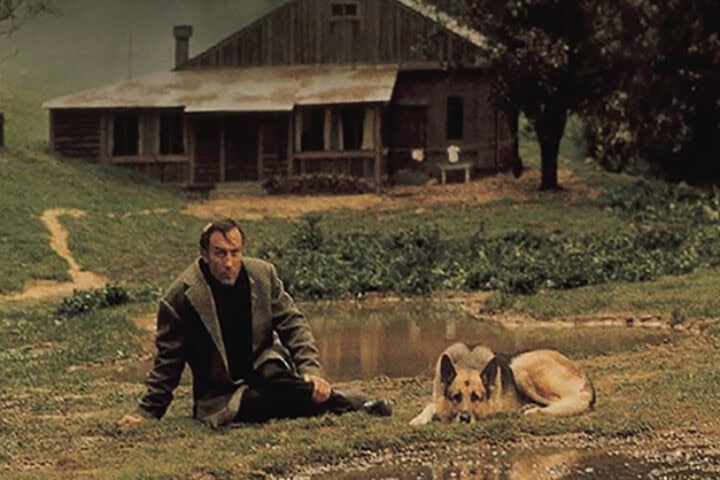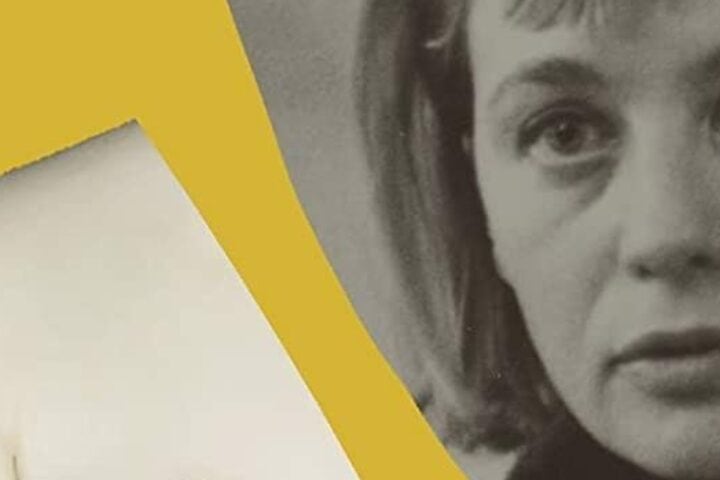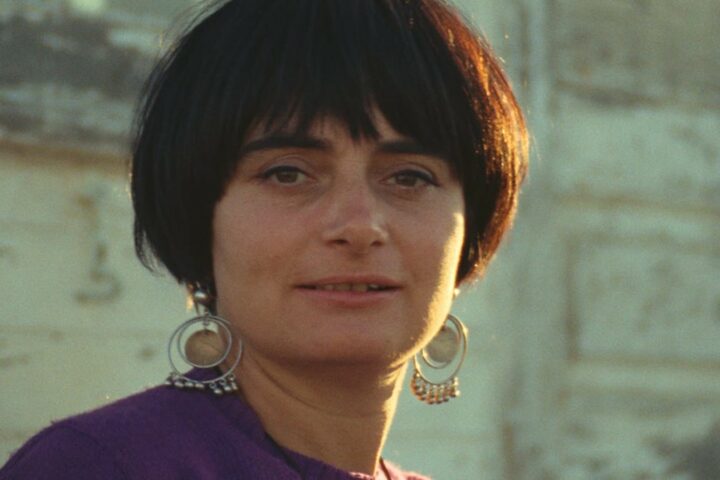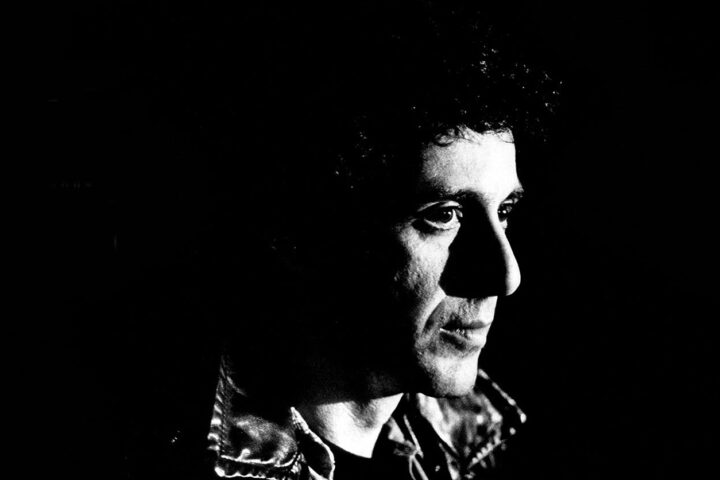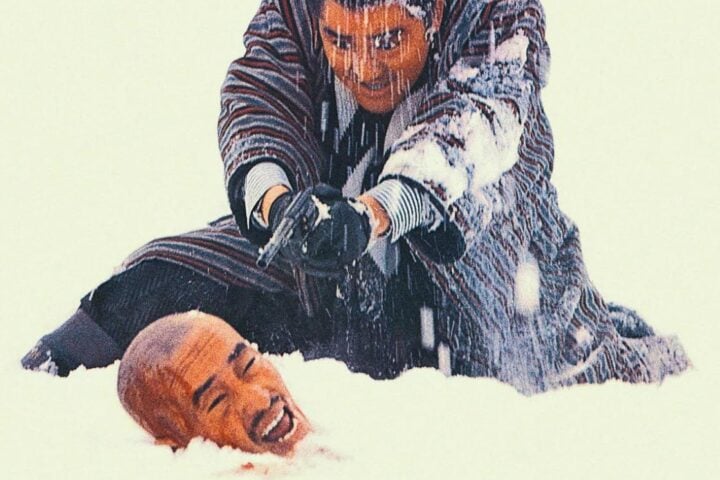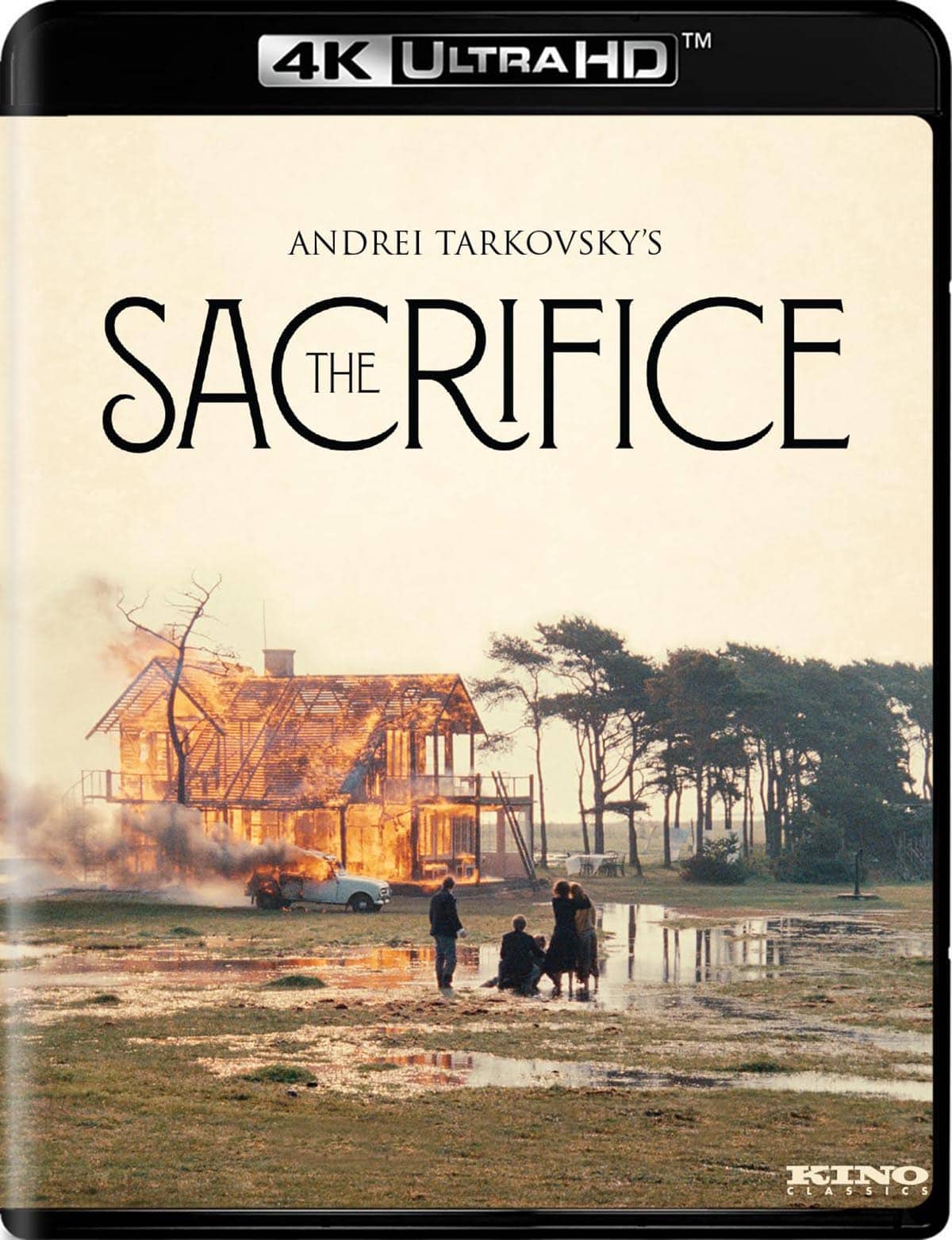 In Andrei Tarkovsky’s The Sacrifice, the distance from hope to despair is a short jump—a chasm crossed with the help of something so immediate as a television transmission. As his birthday celebration winds down on a gloomy summer evening in remote Sweden, retired intellectual Alexander (Erland Josephson) tiptoes half-drunk into his living room to find a group of friends and family bewitched by the soft blue glow of a TV set’s screen, out of which emanates an announcement of nuclear conflict.
In Andrei Tarkovsky’s The Sacrifice, the distance from hope to despair is a short jump—a chasm crossed with the help of something so immediate as a television transmission. As his birthday celebration winds down on a gloomy summer evening in remote Sweden, retired intellectual Alexander (Erland Josephson) tiptoes half-drunk into his living room to find a group of friends and family bewitched by the soft blue glow of a TV set’s screen, out of which emanates an announcement of nuclear conflict.
The warning winds down, the TV is turned off, and the mood descends—first into stunned silence, then into outright hysteria, and then into a kind of sedated anxiousness from which the film never quite resurfaces. In certain contexts, this dramaturgical pivot might register a bit maudlin, but in 2018, when Twitter and cable news provide an endless gushing stream of outrages, the film’s evocation of being rapidly thrown into disarray by a piece of topical turmoil hits home.
The subject of The Sacrifice, made when Tarkovsky was dying of lung cancer, is the existential desperation occasioned by crossing this emotional threshold. When finality is no longer an abstraction but an imminent reality, how does the mind cope? In positing possible responses, Tarkovsky at first defaults to reactionary hypotheses, with Alexander’s wife (Susan Fleetwood) flailing in extreme panic while the local doctor (Sven Wollter) reflexively roleplays alpha-male stoicism by syringing all the women in the room with a powerful tranquilizer.
The film’s emphasis, though, ultimately falls on Alexander, whose recourse to the divine is altogether less predictable. When prayer proves fruitless amid the ongoing whirr of passing fighter jets, the nervous, overly cerebral patriarch dips into apocalyptic superstition, goaded along the way by the folksy local mailman (Allan Edwall) and settles on an irrational pact with God to forgo his speech and belongings in exchange for the continued survival of Earth.
Alexander holds the Tarkovskian belief that man’s material and technological progress has far outpaced his spiritual development, yet our hero isn’t without optimism for the future. His mute son (Tommy Kjellqvist), referred to as Little Man, embodies that optimism, and the child’s disappearance in the film’s latter half signals a symbolic test of faith. Moreover, the leafless tree that the two plant in the opening scene exemplifies the relative prosperity of that faith, while the cottage that Alexander has fashioned for his family acts as a dispensable material appendage.
That the film is conceived in such blunt schematic terms isn’t unusual in Tarkovsky’s body of work—few directors ever made such evocative use of elemental symbology—but what’s damning here is that the scaffolding itself is so visible, thanks in large part to an abnormally talky script that spends its first act highlighting these thematic underpinnings in lengthy monologues.
The Sacrifice’s occasional theatrical bearing betrays its debt to the artistic lineage of its host country, which sits alongside nods to Japanese folklore and Renaissance painting. The trope of an enlightened man suffering under the weight of humanity’s follies, in addition to the minimalist decoration of the room where the central melodrama takes place, call to mind August Strindberg, though the more foundational influence is Ingmar Bergman.

It’s in the presence of Josephson and Edwall, who both hail from the Swedish auteur’s stock company; in cinematographer Sven Nykvist’s soul-baring close-ups, redolent of so many of Bergman’s films; and the use of a nuclear crisis as both instigator and agitator of a spiritual crucible (a la Shame and Persona). Because the two directors shared a mutual admiration, it can be tempting to link them in the mind, but in fact their strengths were quite distinct from one another, and Tarkovsky’s film only suffers in channeling Bergman’s tendencies.
Like Alexander himself, however, who inexorably moves toward an act that’s both foolhardy and awe-inspiring, The Sacrifice eventually transcends the flaws in its design. In its second half, the film embraces a dream logic that captures its protagonist’s mix of woozy terror and almost childlike guilelessness more elegantly than any of his early verbal musings could.
Formal strategies that at first serve to demarcate states of reverie—from the use of slow motion and black-and-white stock footage, to disruptions in visual perspective and spatial clarity—start to impinge on the ostensible reality of the narrative space until the film inhabits a hallucinatory middle ground where an anemic bluish gray is the predominant shade. In doing so, Tarkovsky gives form to Alexander’s breakdown of rationality and adoption of a messianic state. Regardless of whether or not one accepts the legitimacy of his actions—Tarkovsky asks only that we respect his profound conviction—there should be little doubt as to the depth of his despair.
This tight synergy between Alexander’s mad desperation and his creator’s uncompromising willingness to take his predicament seriously apexes in the film’s concluding sequence, a one-take feat that stands as the most disciplined expression of the temporal philosophies Tarkovsky espoused in Sculpting in Time. Over the course of a fully exhausted 11-minute film reel, Alexander watches as a flame he lit grows to engulf his entire house, with the rest of the ensemble emerging in horror from the horizon after it’s too late.
In a back-and-forth tracking shot captured from a distant vantage point, Tarkovsky memorializes both the chaos and serenity of the real-time event, counterbalancing the frenzied action of the figures within the frame with the breathtaking beauty of the burning foundation as it’s reflected in the marshy landscape. Though an incredibly protracted shot, what it really asks is for us to take a short leap: this time from despair back to hope.
Image/Sound
For this 4K UHD edition, Kino Lorber has sourced a 2023 4K SDR restoration from the original 35mm negative of the film. Though the release lacks HDR, the range of colors on display is still quite impressive, from the vibrant greens of grass and trees, as well as the reds and oranges of fire, to the eartheir tones more dominant in the costumes and interior scenes. The cinematography’s subtle plays of light, already beautifully captured on Kino’s 2018 Blu-ray, are now even more immaculately rendered, while the additional image detail enhances the film’s inherent tactility. The audio mix is also strong, delicately balancing the slight yet ever-present natural ambiance with the dialogue, the Bach piece and various Japanese flute music.
Extras
In her audio commentary, author and actress Layla Alexander-Garret unpacks the dense symbolism of The Sacrifice, as well as provides in-depth thematic analysis. As she worked as Andrei Tarkovsky’s translator on the film, she’s also able to provide much insight into his working process and how some of the more difficult shots were accomplished. The accompanying feature-length documentary, Directed by Andrei Tarkovsky, also benefits from its insider perspective. Made by The Sacrifice’s editor, Michał Leszczyłowski, the documentary not only offers plenty of footage of Tarkovsky at work, it uses interviews with collaborators and passages from his book, Sculpting in Time, read in voiceover to present a more holistic view of how the auteur thinks about and creates his films. Lastly, in an interview with Leszczyłowski, the editor discusses his close working relationship with Tarkovsky and how it helped him to finish editing the film after Tarkovsky’s tragic passing from cancer at 54.
Overall
Kino Lorber’s 4K UHD release features a stellar new transfer and a strong slate of extras that are incredibly revealing about Andrei Tarkovsky’s artistic process.
Since 2001, we've brought you uncompromising, candid takes on the world of film, music, television, video games, theater, and more. Independently owned and operated publications like Slant have been hit hard in recent years, but we’re committed to keeping our content free and accessible—meaning no paywalls or fees.
If you like what we do, please consider subscribing to our Patreon or making a donation.

